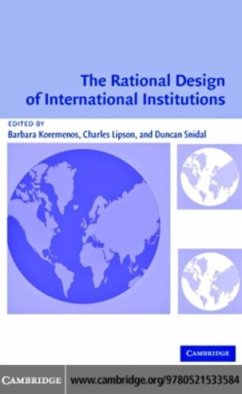International institutions vary widely in terms of key institutional features such as membership, scope, and flexibility. In this 2004 book, Barbara Koremenos, Charles Lipson, and Duncan Snidal argue that this is so because international actors are goal-seeking agents who make specific institutional design choices to solve the particular cooperation problems they face in different issue-areas. Using a Rational Design approach, they explore five features of institutions - membership, scope, centralization, control, and flexibility - and explain their variation in terms of four independent variables that characterize different cooperation problems: distribution, number of actors, enforcement, and uncertainty. The contributors to the volume then evaluate a set of conjectures in specific issue areas ranging from security organizations to trade structures to rules of war to international aviation. Alexander Wendt appraises the entire Rational Design model of evaluating international organizations and the authors respond in a conclusion that sets forth both the advantages and disadvantages of such an approach.
Dieser Download kann aus rechtlichen Gründen nur mit Rechnungsadresse in A, B, BG, CY, CZ, D, DK, EW, E, FIN, F, GR, HR, H, IRL, I, LT, L, LR, M, NL, PL, P, R, S, SLO, SK ausgeliefert werden.









